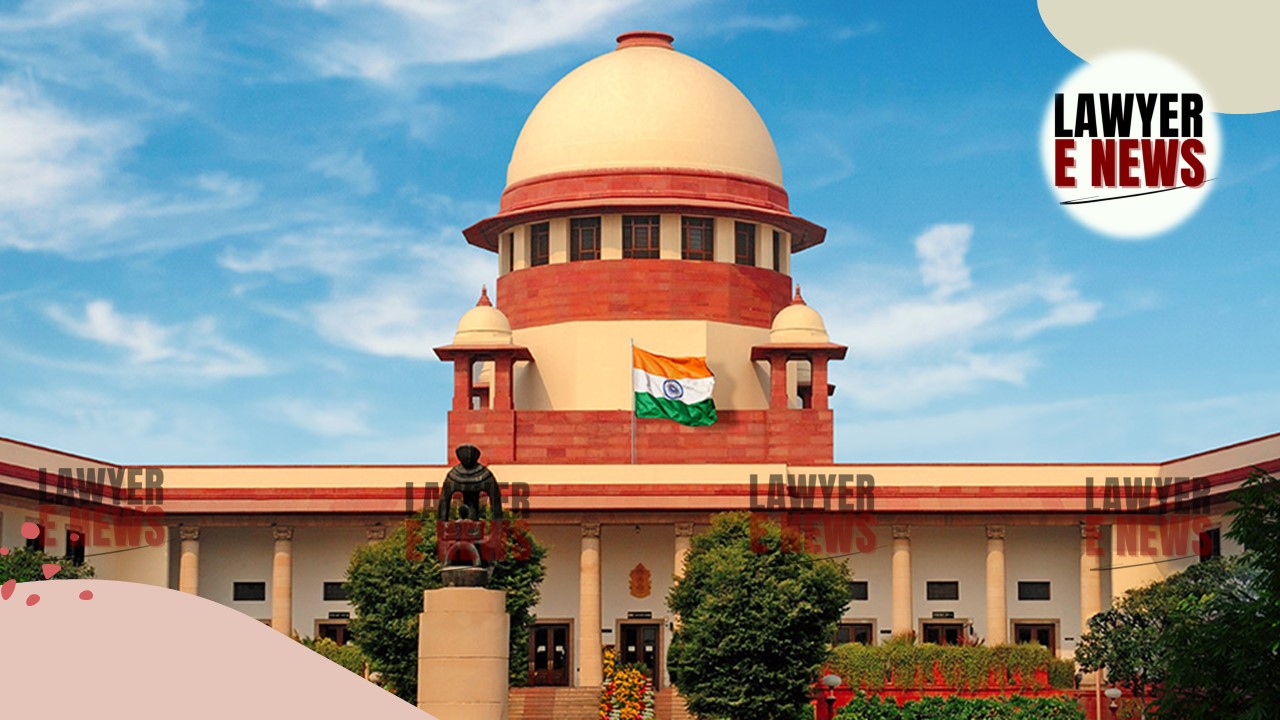-
by Admin
15 February 2026 5:35 AM



Supreme Court of India, in the case of Bhagwan Singh v. State of U.P. & Ors., delivered a scathing judgment condemning the abuse of judicial process. The court uncovered a fraudulent Special Leave Petition (SLP) filed in the name of Bhagwan Singh, without his consent or knowledge, and directed a Central Bureau of Investigation (CBI) probe into the matter. The court held that the fraudulent activities, involving multiple advocates, sought to undermine the judiciary and pollute the stream of justice. This landmark decision is a critical move to preserve the integrity of the judicial system.
The case revolved around the filing of an SLP challenging orders of the Allahabad High Court. During the proceedings, it emerged that Bhagwan Singh, the named appellant, had neither authorized the filing of the SLP nor was aware of the proceedings initiated in his name. The false SLPs were orchestrated by respondents Sukhpal Singh and Rinki, Bhagwan Singh's son-in-law and daughter, respectively, in collusion with advocates who submitted forged documents, including a falsified Vakalatnama purportedly signed by Bhagwan Singh. The petition sought to recall a 2019 High Court order quashing charges against Ajay Katara, a key witness in the high-profile Nitish Katara murder case.
The central issue was whether the SLPs were filed fraudulently using forged documents, without the knowledge or consent of Bhagwan Singh. The court noted that such fraud, especially when perpetrated by advocates, constitutes a grave abuse of legal process. The court observed:
“Often brazen attempts are being made to abuse and misuse the process of law by committing frauds on Courts. This is one such case where such an attempt has been made to pollute the stream of justice.” [Para 4]
Multiple advocates were involved in the fraudulent filings. Advocate-on-Record Anubhav Yashwant Yadav and several others admitted to signing and submitting documents, including a falsified Vakalatnama and affidavits, without verifying Bhagwan Singh's identity or obtaining his authorization. The court emphasized the high ethical standards expected from advocates and noted:
“Advocates are officers of the Court. Their conduct must conform to the Rules of Conduct and Etiquettes… This fraud was facilitated by multiple legal professionals, making it even more egregious.” [Para 31]
Ajay Katara, a key witness in the Nitish Katara murder case, had been falsely implicated in multiple legal cases, including this one. The court highlighted the importance of witness protection, stating:
“The respondent no. 2 – Ajay Katara, the only independent prosecution witness in the Nitish Katara case, continues to face intimidation and false cases.” [Para 26-28]
The court dismissed the appeals as fraudulent and without merit, condemning the parties for their misuse of judicial processes.
The Supreme Court directed the CBI to conduct a thorough investigation into the fraudulent filings, including the involvement of the respondents and the advocates. The CBI was instructed to report its findings by November 25, 2024. The court ordered:
“We deem it appropriate to hand over the investigation of the case to the CBI… to investigate all the links leading to the commission of the alleged crimes and fraud on court.” [Para 32]
The court urged the Bar Council of India and the Government of India to take necessary corrective actions, emphasizing the need for strict adherence to
“The legal profession is perceived to be a noble profession… There is a great sanctity attached to the proceedings conducted in the court.” [Para 33]
The court directed that advocates' names should only be listed in court records if they are authorized to appear and argue on behalf of a party, addressing concerns over misuse of appearance slips. [Para 42]
The Supreme Court's decision in Bhagwan Singh v. State of U.P. & Ors. serves as a stern warning against the misuse of the legal system. By ordering a CBI investigation and setting strict guidelines for legal practitioners, the court has taken significant steps to uphold the integrity of the justice system and protect the sanctity of court processes.
Date of ORDER: September 20, 2024
Bhagwan Singh v. State of U.P. & Ors.
